Marbury v Madison [1803] 5 US 137
Judgement for the case Marbury v Madison
Table Of Contents
KEY POINTS
-
An Act of Congress is a law passed by both houses and signed by the President.
The Secretary of War oversaw military affairs, now replaced by the Secretary of Defense.
The Report of Commissioners is an official document offering insights based on investigations.
A vested legal right is a secure entitlement, often rooted in statutes or contracts.
Original jurisdiction allows a court to hear a case for the first time. Appellate jurisdiction lets a higher court review and revise decisions made by lower courts.
Constitutional interpretation involves deciphering the U.S. Constitution's meaning.
The Oath of Office is a commitment taken by officials pledging allegiance and dedication to uphold their duties.
These elements shape the American legal and political system, ensuring governance, justice, and the protection of individual rights.
FACTS
In the last days of President John Adams' term, he appointed several justices of the peace for the District of Columbia, including William Marbury.
The commissions, however, were not delivered before Adams's presidency ended. When Thomas Jefferson assumed office as the new president, his Secretary of State, James Madison, refused to deliver the undelivered commissions.
Marbury petitioned the Supreme Court for a writ of mandamus, a court order compelling an official to perform a duty, directing Madison to deliver the commissions.
Chief Justice John Marshall, who was also acting as Secretary of State at the time of the appointments, heard the case.
The central issue was whether the Judiciary Act of 1789, which granted the Supreme Court the power to issue writs of mandamus, was constitutional.
JUDGEMENT
Chief Justice Marshall acknowledged that William Marbury had a legal right to his commission as a justice of the peace and that his appointment was valid.
The Court, however, declared that the portion of the Judiciary Act of 1789 that granted the Supreme Court the authority to issue writs of mandamus, including the one Marbury sought, was unconstitutional.
Chief Justice Marshall established the principle of judicial review. He argued that the judiciary had the duty to interpret the Constitution and determine the constitutionality of laws. In this case, Marshall asserted that the Court had the power to review acts of Congress and determine their constitutionality.
Marshall clarified that the Constitution's grant of original jurisdiction to the Supreme Court did not extend to cases like Marbury's. As a result, the Court could not issue a writ of mandamus in this circumstance.
COMMENTARY
-
Marbury v. Madison (1803) involved William Marbury's petition for a writ of mandamus to force Secretary of State James Madison to deliver his justice commission.
Chief Justice John Marshall acknowledged Marbury's right but declared the Judiciary Act of 1789 unconstitutional, establishing the principle of judicial review.
Marshall clarified the Constitution's original jurisdiction did not apply, preventing the Court from issuing the writ. T
his case shaped constitutional interpretation, affirming the judiciary's role in reviewing laws' constitutionality.
-
President John Adams' final days, he appointed justices of the peace, including William Marbury.
The undelivered commissions became a point of contention when President Thomas Jefferson took office, and Secretary of State James Madison refused to deliver them.
Marbury petitioned the Supreme Court for a writ of mandamus, compelling Madison to deliver the commissions.
For Further Study on Marbury v Madison
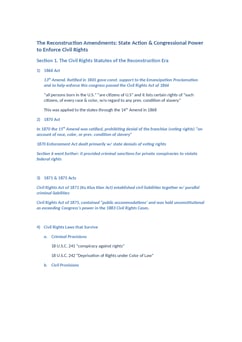
I handwrote my notes for this entire class and then used the notes to c...
Need instant answers? Our AI exam tutor is here to help.
Ask questions 🙋 Get answers 📔 It's simple 👁️👄👁️
Our AI is educated by the highest scoring students across all subjects and schools. Join hundreds of your peers today.
Get StartedSimilar Cases
Related Product Samples
These product samples contain the same concepts we cover in this case.
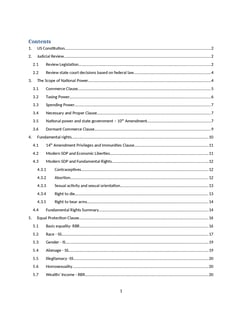
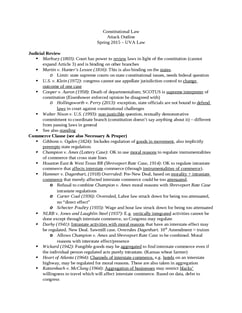
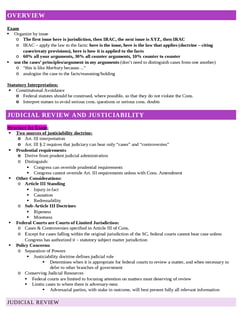
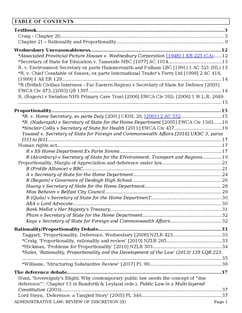
 Since 2010, Oxbridge Notes has been a trusted education marketplace, supplying high-quality materials from top achievers at universities like Oxford, Cambridge, LSE, Harvard, and Yale.
Since 2010, Oxbridge Notes has been a trusted education marketplace, supplying high-quality materials from top achievers at universities like Oxford, Cambridge, LSE, Harvard, and Yale.